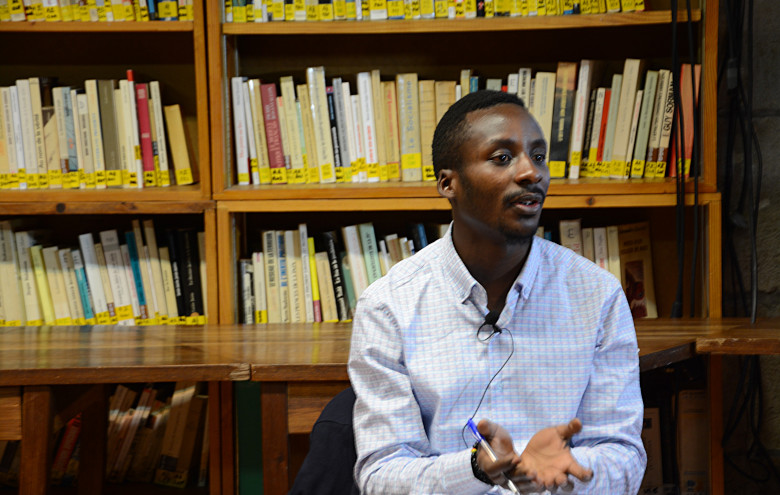Computing Access for People in Extreme Poverty

Above: Emmanuel Mugisho Murhandikire
By Emmanuel Mugisho Murhandikire, ATD Fourth World ally in Bukavu, Democratic Republic of the Congo
In many countries, access to computers gives citizens a stronger voice in local, regional, and national affairs. Information and communication technologies can promote individual and social change, but today the benefits of these technologies are limited to those who know how to use them. How can young people living in extreme poverty understand and have knowledge of technologies they don’t have access to?
Computer training
In the Democratic Republic of the Congo, ATD Fourth World runs a computer training program. The goal is to provide access to information and communication technologies to people who do not otherwise have it. This program started with a meeting of young people talking about how to “Unite to turn our potential into opportunity for all and a source of hope for people living in extreme poverty”.
Access to knowledge
In Bukavu, many young people can’t make themselves heard. Coming from families that have experienced or still live in extreme poverty, they have never had computers. They have very limited access to new technologies and have had no opportunity to learn how to use computers.
For many young people today, it’s difficult to find decent, dignified, and fulfilling work. Despite the speed and worldwide progress of information and communication technologies, these young people find it difficult to use a computer because they do not have basic computer skills. This lack of skills is a contributing factor in the persistence of extreme poverty.
The intelligence of these young people often goes unrecognized. Our societies today like to label people, and often refuse to see people who live or have lived in poverty as contributing members of society. People who are stigmatized as “poor” therefore often find themselves in situations that increase their vulnerability. As long as their intelligence is overlooked, they are unable to fully contribute to building the world of tomorrow.
- There is thus a vicious cycle: their limited or non-existent access to knowledge and communication tools reinforces the belief that these young people are not intelligent and don’t know how to do things.
Computer training to overcome disadvantage
ATD Fourth World in the Democratic Republic of the Congo decided to set up a computer training course entitled “Young people and computers: education for a just world”.
The goal is to promote access to information and communication technologies for young people who do not have access to them and to open up digital knowledge to all.
As a student in Computer Management in Bukavu, I help train young people. I understand that my knowledge must serve those who are held back by their lack of knowledge. I teach basic computer skills to the young people in this training program. The knowledge they gain will help them throughout their lives. I offer my skills in the hope that this will help these young people break the chains of extreme poverty.
Knowledge brings hope
During the training program, parents give their young people lots of support and encouragement. They want their children to learn well. For the young people and their community, this training is a source of pride and hope. When a young person doesn’t have computer skills on their CV, it’s harder for them to find work.
Our planet needs everyone to help build peace and a fairer world. As we say: “All hands are useful in transforming the earth.”
Photo above: Emmanuel Mugisho Murhandikire, Méry sur Oise, France 2022 © ATD Fourth World/Joseph Wresinski Center/1212 006 007
More on ATD in Democratic Republic of the Congo
ATD Africa Region facebook page

